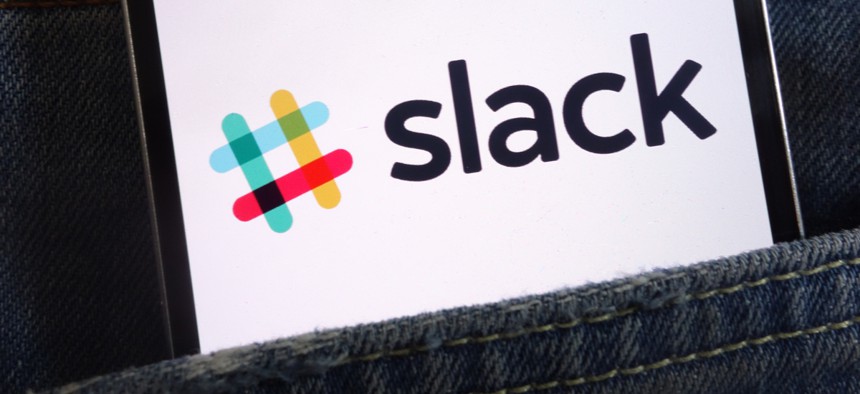Slack Was Able to Become a $7 Billion Company by Playing Nice With Others

Piotr Swat/Shutterstock.com
Slack’s ethos is one of inclusion
Venture capitalists’ interest seems to come in waves (remember the “Uber for X” fad?), and right now, the company of the moment is the the four-year-old workplace messaging company Slack.
Slack announced a new $427 million round of financing Aug. 21, valuing the company at more than $7.1 billion. (This Series H round is in addition to the $841 million it’s already raised.) With only 70,000 paying teams (which equates to roughly 3 million paying users), Slack has been able to generate hundreds of millions of dollars in annual revenue. But perhaps most notably, Slack is succeeding with a very different playbook from previously Silicon Valley darlings, like Uber.
Slack’s ethos is one of inclusion. On a product level, its ability to integrate with other companies and apps set it apart. Though it was by no means the first workplace messaging app, the platform was built to seamlessly work with other workplace tools like Salesforce and Google Docs, which became a unique selling point. Within the app, Slack is meticulously designed to be inclusive—from multi-racial emojis to little copy quips that make Slack feel like a welcoming place to do work. And within the company, Slack has been transparent with data on their internal company diversity and efforts to invest in diversifying the greater tech ecosystem.
“Nobody attributes the fact that Slack has been one of the most successful SaaS [Software-as-a-Service] startups of all time to their efforts on inclusion,” Anil Dash, CEO Fog Creek Software and longtime tech writer, told Quartz. “But they’ve been trying to do things the right way, and I think that’s precisely how they’ll win.”
Perhaps no better anecdote describes Slack’s mentality than the full-page newspaper ad the company took out after Microsoft, who was supposedly in talks to buy the company, launched Microsoft Teams, a direct competitor. The ad read: “We’re genuinely excited to have some competition,” and was signed, “Your friends at Slack.” Though it might be easy to interpret the ad as a Silicon Valley Jedi mind trick—Apple snarkily wrote a similar letter to IBM when it entered the PC market in the 1980s—Slack had earned a reputation for being earnest
Overall feedback is v. positive. I think most people can read between the lines. And, for real: competition's good for everyone.
— Stewart Butterfield (@stewart) November 2, 2016
Competition has pushed Slack to innovate—and often surpass—its competition. For example, after competing with Slack for half a decade, Atlasssian, the business-to-business software giant which made Stride and Hipchat, ended up shutting down its competing products and selling Slack its intellectual property in July.
Imagine winning a market so dramatically that your competitor shuts down their competing services, hands you their IP, and gives you money for the trouble. https://t.co/N3HdFE0Yfr
— Mikeal Rogers (@mikeal) July 26, 2018





